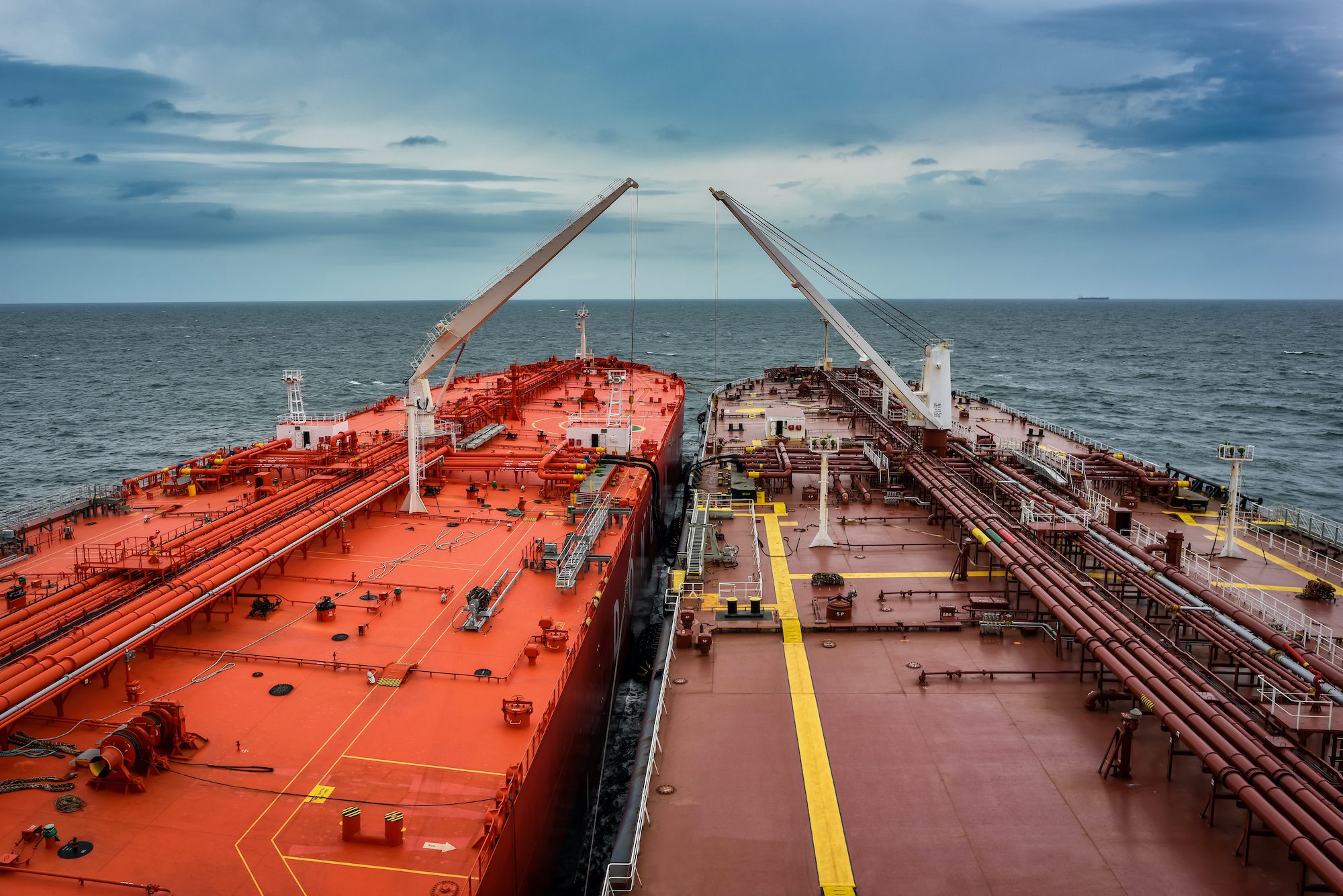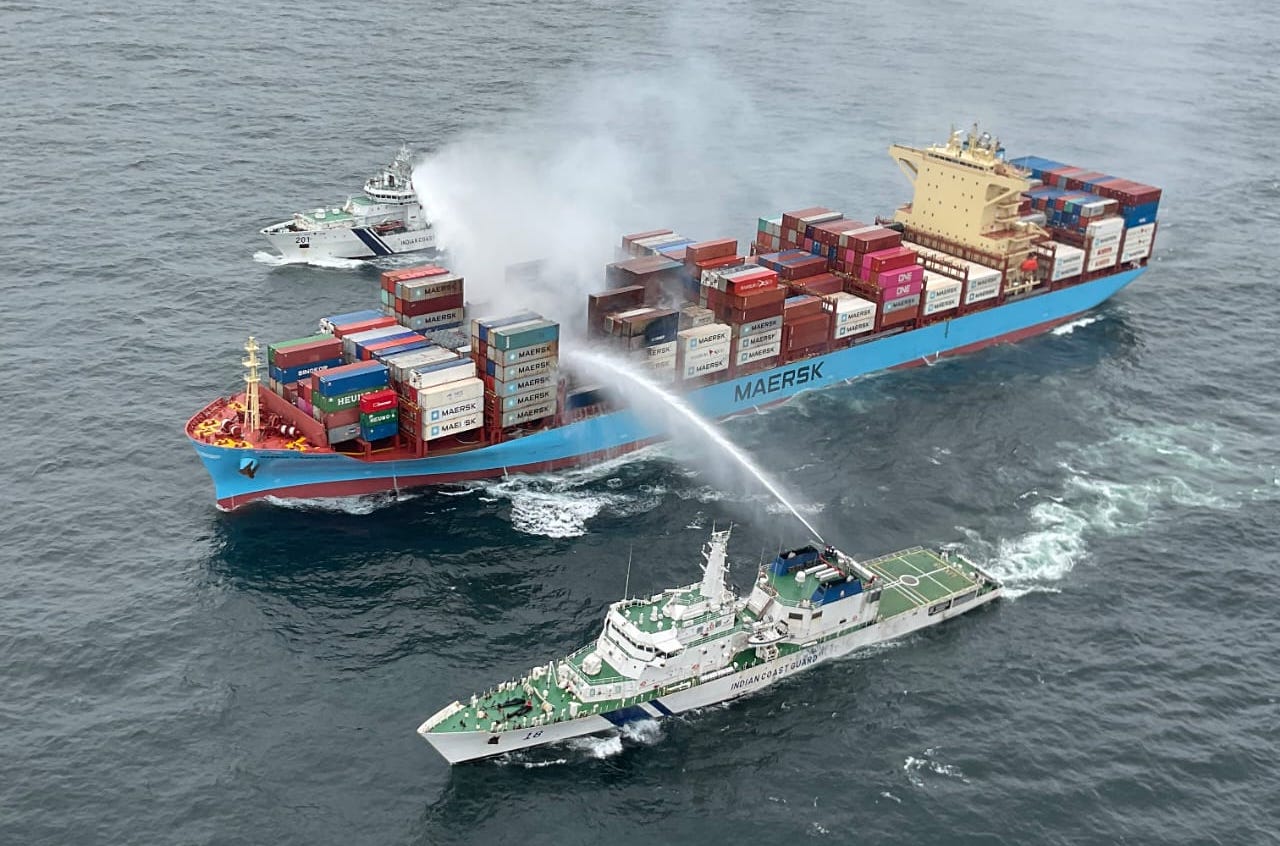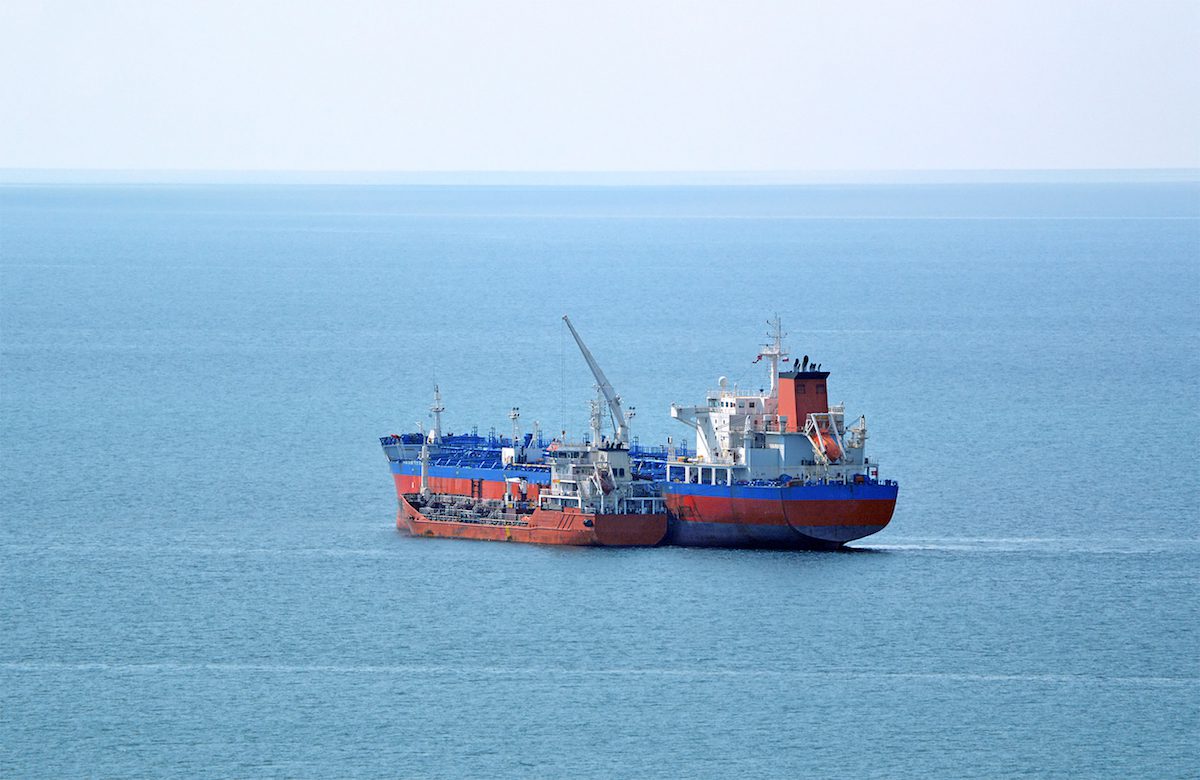By Sherry Su and Sharon Cho (Bloomberg) —
US crude transferred from bigger to smaller tankers will contribute to pricing of the world’s most important oil benchmark, removing what traders saw as a stumbling block in a long-planned reform.
WTI Midland crude loaded onto a smaller Aframax tanker, which received the cargo from a larger vessel in a transfer at sea, will be allowed to be offered in the pricing window run by S&P Global Commodity Insights, commonly known as Platts.
“A seller may deliver from an Aframax that has performed a ship-to-ship transfer from another vessel, provided all of the oil on board that vessel has demonstrably loaded at one of the US Gulf Coast terminals approved by Platts,” the company said in a subscriber note published on its website.
Dated Brent, the benchmark used to set two-thirds of global crude trades, will undergo the most significant change in its history in the coming days. From early May, WTI Midland will join the current basket of five North Sea grades — Brent, Forties, Oseberg, Ekofisk and Troll — that set the global benchmark.
The change will bring much-need liquidity into the benchmark, which for years has been suffering from shrinking supplies. Friday’s note brought clarity to one of the uncertainties that had been associated with the overhaul.
In determining benchmark prices, Platts will only assess bids, offers or trades from cargoes on board Aframax tankers that typically hold about 700,000 barrels of crude — soon to be the standard cargo size in the region. But almost 60% of US crude flows to Europe were transported by bigger tankers, such as Very Large Crude Carriers that can hold about 2 million barrels, according to data compiled by Bloomberg.
The guidance makes clear that a seller of WTI Midland can still charter a supertanker to haul its oil to Europe, which in principle then can conduct ship-to-ship transfers of the cargo onto three Aframaxes. Any of the cargoes will be allowed to be offered on Platts window as long as it meets quality criteria.
“Platts is aware that larger vessels move Midland to Europe and beyond and is keen to reflect the flows observed,” Platts said in an emailed response to questions from Bloomberg. “We have discussed this with the industry for some time and feel this inclusion of cargoes that may have already STS-ed gives such flows an opportunity to be reflected in Dated Brent.”
Issues still remain though. Some traders voiced concerns about the increased costs associated with STS transfers. And Platts will not assess cargoes straight from VLCCs or Suezmaxes, for now at least. That’s even though most Suezmaxes plying this route only carry standard-size cargoes of 700,000 barrels, despite their capacity for holding at least 1 million barrels.
© 2023 Bloomberg L.P.
Unlock Exclusive Insights Today!
Join the gCaptain Club for curated content, insider opinions, and vibrant community discussions.

 Join The Club
Join The Club













